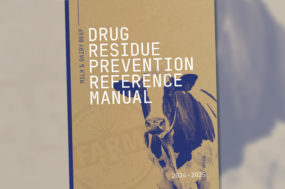On Feb. 7, President Barack Obama signed into law the bipartisan 2014 Farm Bill at a special signing ceremony on Michigan State University’s campus. Also present was Sen. Debbie Stabenow (D-MI), the farm bill’s lead Senate author and Chairwoman of the U.S. Senate Committee on Agriculture, Nutrition and Forestry for the ceremony.
Farmers, conservations leaders and local food advocates were also on hand.
The Farm Bill, formally titled the Agricultural Act of 2014, replaces the 2008 Farm Bill, which expired in September 2012, although some of its benefits were extended through September 2013 when a 2012 bill failed to pass.
The Agricultural Act of 2014 reforms food and agricultural policy by eliminating direct payments to farmers and strengthening risk management tools. This transformation provides the bulk of the Farm Bill’s deficit reduction of $23 billion.
Dairy policy and nutrition spending were the two major sticking points during the lengthy congressional negotiations, which began early in 2012.
The final bill was a compromise in terms of dairy policy, as well as on other fronts. Senator Patrick Leahy (D-Vt.) said, in a statement:
"I am disappointed that the commonsense dairy policies that were passed twice by the full Senate and also by the House Agriculture Committee were ambushed at the last hour. As a result we do not have a market stabilization program – proposed by dairy farmers themselves – that would have protected taxpayers from exorbitant costs, and insulated dairy farmers and consumers from volatile, rollercoastering milk prices.
"Nonetheless, we have a solution that, while not perfect, will help our small dairy farms to protect themselves from poor economic conditions when milk prices plummet, or when feed prices skyrocket, or, in the worst scenario, when both happen at once."
Bob Wellington is a senior vice president and dairy economist at the milk cooperative Agri-Mark, which owns Cabot. He told VTDigger.com that the margin protection was good news for Vermont farmers, but said the proposed dairy market stabilization program would have made even more sense financially, for the federal government and for Vermont farmers.
A statement from the National Milk Producers Federation (NMPF) said:
"When two years of Congressional wrangling over the farm bill and the federal dairy program finally ended this week with Senate approval of the measure, no one, including milk producers, got exactly what they wanted. But the $956 billion, 950-page bill does feature the most significant rewrite of dairy policy in more than a generation, through the creation of a new margin insurance program."
NMPF has published a document summarizing the key provisions of the farm bill's dairy title. PD
—Summarized by PD staff from cited sources
PHOTO
Senate President Pro Tempore Patrick Leahy, D-Vt, after signing the Agriculture Act of 2014 on Feb. 4, in the traditional “milk toast” to dairy farmers. Photo republished from Senator Leahy's Twitter feed (@SenatorLeahy).



